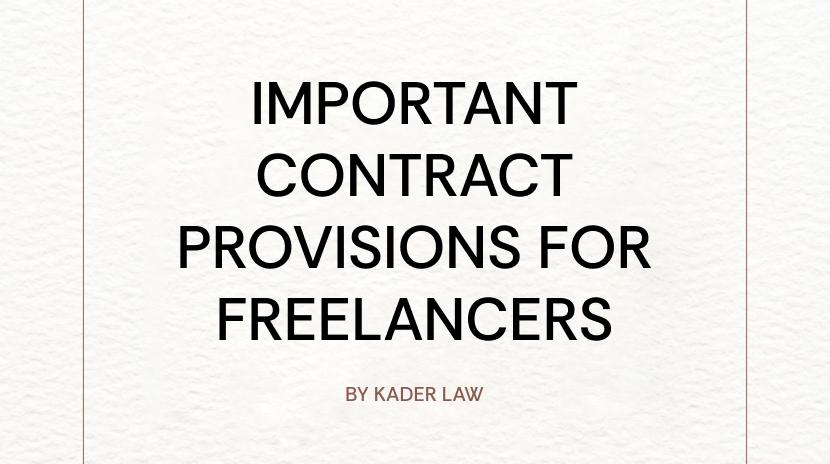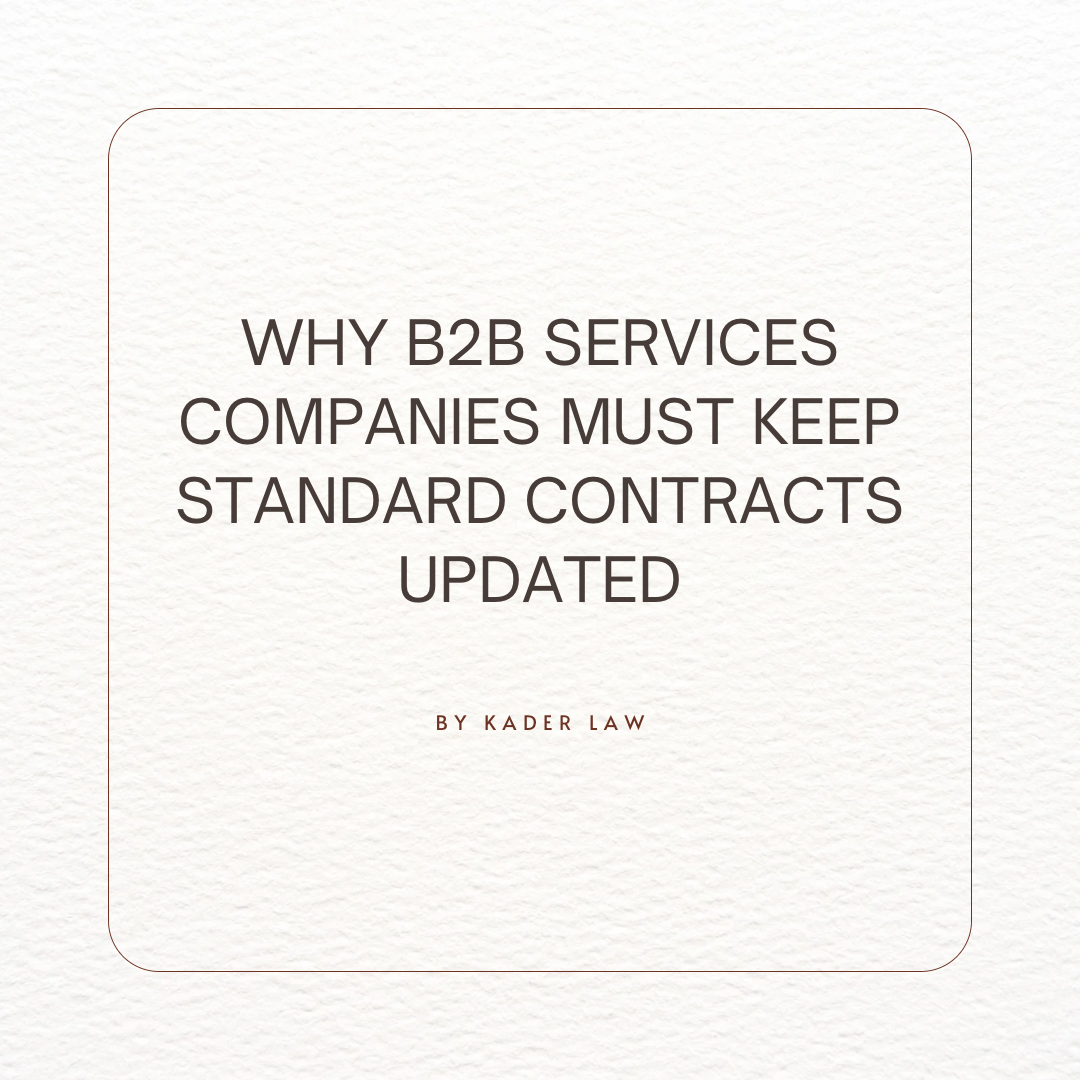Important Contract Provisions for Freelancers

As an independent service provider - whether you are a DJ, photographer, videographer, event planner, contractor, or any type of consultant - you should have a strong contract in place with your clients to protect you from future headaches due to the unexpected.
You've got options with these contracts. You can write one yourself, find a template online, or hire an attorney to review one you wrote, or write one for you.
However you decide to get your contract in place, there are several very important provisions every good contract should have with your best interests in mind. They include:
- CANCELLATION POLICY - Under what circumstances can either you or your client cancel your contract? How much notice should be given?
- INDEMNIFICATION - Under what circumstances will your Client agree to indemnify and hold you harmless from all claims, losses, expenses, and fees including attorney fees, costs, and judgments that may be asserted against you?
- WARRANTY - What promises are you making, and what standard are you holding yourself to when providing your services? What specific guarantees are you making to your client? You want to limit this to the standard set by other services providers in the same industry.
- DEFAULT - What occurrence would consider your contracted defaulted upon - such as missed payments, material change in service, insolvency or bankruptcy of either party, etc.
- REMEDIES - What remedies are available to either party in case one defaults? Will there be fees involved? How else can you approach remedying a default?
- FORCE MAJEURE - This provision is a backstop in case something outside of either parties control happens to render the service undeliverable - such as a natural disaster, a fire, etc.
- DISPUTE RESOLUTION - Do you want to go to court in case your service engagement goes sideways? Do you want alternative dispute resolution or mediation as the first option? You can define this in your contract.
- SEVERABILITY - If any part of your contract is deemed invalid or cannot be performed - you can deem the rest of your contract as enforceable, and leave that part out.
- AMENDMENTS - How do you want to make changes to your engagement after this contract is signed? What kind of changes are allowed?
- ENTIRE AGREEMENT - When negotiating - you might promise a few things that don't necessarily translate into the services you're providing. This provision makes sure that everything in your written contract is the complete and total agreement, and anything before - written or verbal - does not count.
- GOVERNING LAW - Under what state's law will your contract be governed? Usually this should be the state in which you, the service provider, resides.
- NOTICE - How do you want to receive notice about anything to do with this engagement? Written is usually the best way to go.
- WAIVER OF CONTRACTUAL RIGHT - Neither party should waive their contractual right to this agreement as a whole if they fail to uphold one provision of the contract. This ensures you still have remedies in case your client isn't satisfied by one small part of your engagement.
Let Us Help
As an attorney, I always advise my clients to have an attorney review or write your client facing contracts. You want to make sure your best interests are covered, and should something go wrong - you have recourse.
Kader Law can draft a contract that is thorough and specific to your industry. Contact us today to get started.
This post is not legal advice, and does not establish any attorney client privilege between Law Office of K.S. Kader, PLLC and you, the reader.
Maybe you will like this
Let's Connect
We’re here to help.
Location
Contact
Law Office of K.S. Kader, PLLC
1629 K St. NW, Suite 300
Washington, DC 20006



